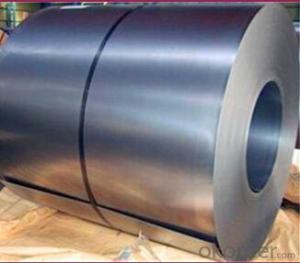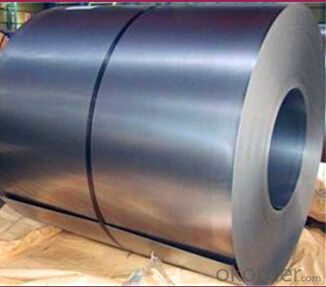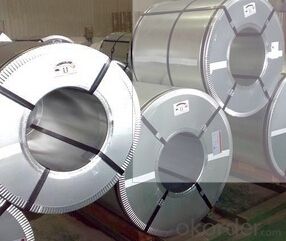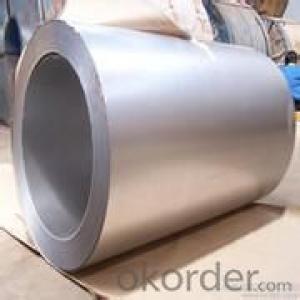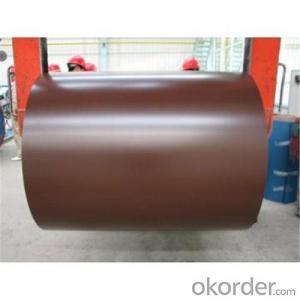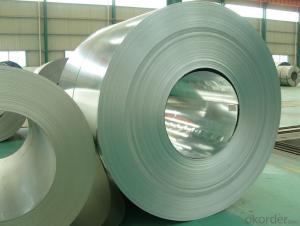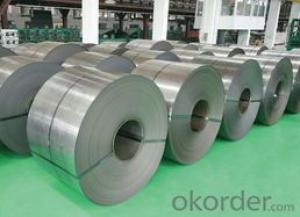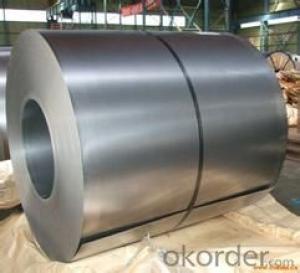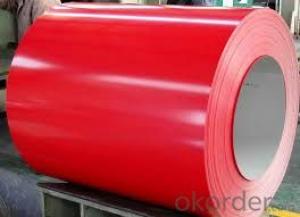COLD ROLLED STEEL COILS(SHEET/PLATE) for Construction
- Loading Port:
- Tianjin
- Payment Terms:
- TT OR LC
- Min Order Qty:
- 25 m.t.
- Supply Capability:
- 50000 m.t./month
OKorder Service Pledge
OKorder Financial Service
You Might Also Like
cold rolled steel coil description:
Standard:ASTM,GB,JIS
Grade:Q235,DC01,DC03,DC04
Thickness:0.15~3.0mm
Model Number:1000-1540(MM)
TypeSteel Coil
Technique:Cold Rolled
Application:Ship Plate
Special Use:High-strength Steel Plate
Width:1000~1540mm
Length:as required
Packaging & Delivery
Packaging Detail:Waterproof paper, steel strip packed, wooden case Seaworthy package
Delivery Detail:35 days after we get deposit or L/C
Specifications :
Cold rolled steel coils
Sole agency of HBIS.
Width:1000~1540(MM)
Thickness: 0.15~3(MM
COLD ROLLED STEEL COILS(SHEET/PLATE)
STANDARDS
Q/TB303,EN 10130:DC04,DC03; Q/TB302,JIS G3141 :SPCC,SPCD
EN 10130:DC04; JIS G3141 :SPCE;
Q/TB303-2008:DC01( O3), DC03( O3);
STANDARDS :2010JX(25) :TYH-2; 2010JX(12) :TYH-3; 2010JX(22) :TYH-4;
STANDARDS :GBT11253-2007: Q235; 2011 JX(19):LQ215; 2011 JX(21):THD
STANDARDS : EN10268:2006:HC340LA
STANDARDS : 2010JX(42):TGW800-1, TGW1000A-1, TGW1000B-1
Mechanical Properties
Purpose | Grades | Yield strength/Re/MPa(1) | Tensile strength/ Rm/MPa | Elongation/A80/%(2) | r90 | n90 |
Commercial | DC01 | ≤280 | 270-410 | ≥28 | - | - |
Drawing | DC03 | ≤240 | 270-370 | ≥34 | ≥1.3 | - |
| ||||||
Purpose | Grades | Yield strength/Re/MPa(1) | Tensile strength/ Rm/MPa | Elongation/A80/%(2) | 180o Bend test | ||||
h < 0.4 | ≥0.4~<0.65 | ≥0.6~<1.0 | ≥1.0~<1.6 | ≥1.6~<2.0 | b≥20mm | ||||
Commercial | SPCC | - | ≥270 | ≥32 | ≥34 | ≥36 | ≥37 | ≥38 | d=0a |
Deep drawing | SPCD | ≤240 | ≥270 | ≥36 | ≥36 | ≥38 | ≥39 | ≥4O | d=0a |
| |||||||||
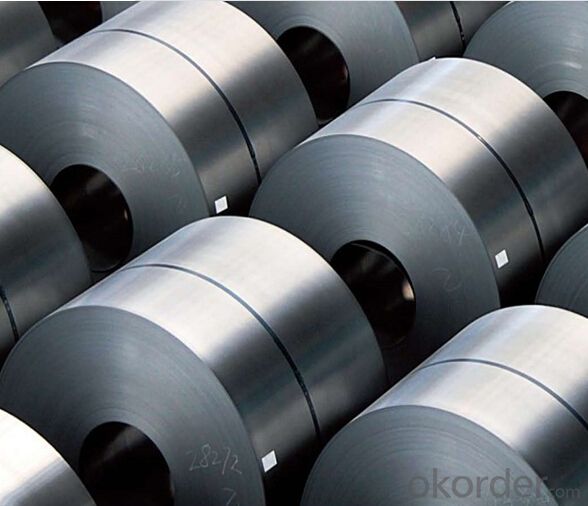
- Q: Just wondering how good are forge steel screw drivers, tool boxes(organisers) and pliers are, as screw fix are having a january sale, and looking to add to my tool collection. Thanks in advance
- I answer 2 questions a week from people wondering if so-and-so brand make good tools. Listen I am a Professional Contractor, and I will tell u my guys and I hammer the **** out of them. I follow 1 simple rule when buying tools- buy the best u can afford always. In the case of screwdrivers, wrenches, handtools.....buy craftsman. Spend a little more now and save lots later. The collection u are adding to will thank you.
- Q: What are the different types of steel coil coatings?
- Various purposes require the use of different types of steel coil coatings. Some of the most commonly used types include: 1. Galvanized Coating: This coating, based on zinc, offers excellent corrosion resistance to steel coils. It is often utilized in outdoor applications that subject the coils to harsh weather conditions. 2. Galvannealed Coating: Similar to galvanized coating, galvannealed coating also contains zinc, but it undergoes heat treatment to form an alloy with the steel surface. This type of coating provides superior paint adhesion and is frequently employed in applications where the coated coils will be painted or further processed. 3. Pre-painted Coating: As the name suggests, pre-painted coatings are applied to steel coils before they are delivered to customers. These coatings can be made of various materials such as polyester, polyurethane, epoxy, or fluoropolymer. Pre-painted coils are commonly used in the construction, automotive, and appliance industries. 4. Electro-galvanized Coating: This coating is applied to steel coils through an electroplating process, depositing a thin layer of zinc on the steel surface. Electro-galvanized coatings offer good corrosion resistance and are often employed in indoor applications or where a thinner coating is desired. 5. Aluminized Coating: Aluminized coatings involve applying a thin layer of aluminum to the surface of steel coils. This type of coating provides excellent heat resistance and is commonly used in exhaust systems, ovens, and other high-temperature applications. 6. Organic Coatings: Steel coils are typically coated with organic materials to provide additional protection against corrosion and improve aesthetics. These coatings can come in the form of paints, lacquers, or powder coatings, and they can be tailored to meet specific requirements in terms of color, gloss, and durability. In conclusion, the selection of a steel coil coating depends on the specific application, environmental conditions, desired aesthetics, and performance requirements.
- Q: How are steel coils inspected for surface cleanliness during processing?
- Steel coils are inspected for surface cleanliness during processing through various methods such as visual inspection, magnetic particle inspection, and ultrasonic testing. These methods help identify any contaminants, defects, or surface irregularities that may affect the quality of the steel coils.
- Q: I need help! Please help, I'm in Chemistry, and me and my friend Lucy are making a presentation on steel and iron, so how is steel manufactured? Thank you. :D
- The steel consists of ( Iron ) and another matter... but the popular one is iron+carbon / iron+silver - When iron is smelted from its ore by commercial processes, it contains more carbon than is desirable. To become steel, it must be melted and reprocessed to reduce the carbon to the correct amount, at which point other elements can be added. This liquid is then continuously cast into long slabs or cast into ingots. Approximately 96% of steel is continuously cast, while only 4% is produced as cast steel ingots. The ingots are then heated in a soaking pit and hot rolled into slabs, blooms, or billets. Slabs are hot or cold rolled into sheet metal or plates. Billets are hot or cold rolled into bars, rods, and wire. Blooms are hot or cold rolled into structural steel, such as I-beams and rails. In modern foundries these processes often occur in one assembly line, with ore coming in and finished steel coming out. Sometimes after a steel's final rolling it is heat treated for strength, however this is relatively rare.
- Q: Can steel coils be transported by air?
- Yes, steel coils can be transported by air. However, it is important to note that the size and weight of the coils may limit the type of aircraft that can be used for transportation. Additionally, special equipment and packaging may be required to ensure the safe and secure transport of the coils.
- Q: it has 2 be 20 inches overall, and 2and1/2 inches wide and .25 or more inches thick... im thinking truck steel but im not sure thx
- I made mine from a power hack saw blade. Granted it isn;t a quarter inch thick but it sure works well. Used the tooth part for the blade edge, just ground off the teeth. I can use a hammer or a stone on he back side of the blade to chop through the bone when cleaning deer.
- Q: Can steel coils be coated with fluorescent materials?
- Yes, steel coils can be coated with fluorescent materials.
- Q: How are steel coils used in the manufacturing of agricultural irrigation systems?
- Steel coils are used in the manufacturing of agricultural irrigation systems primarily for the fabrication of pipes and tubing. These coils are formed into the desired shape and size, allowing for efficient water transportation and distribution throughout the agricultural fields.
- Q: What are the benefits of using steel coils in the manufacturing of pipes?
- There are several benefits of using steel coils in the manufacturing of pipes. Firstly, steel coils offer high strength and durability, making them capable of withstanding extreme pressure and temperature conditions. This ensures the longevity and reliability of the pipes. Secondly, steel coils provide excellent corrosion resistance, which is crucial for pipes that come into contact with different substances or are used in corrosive environments. Additionally, steel coils allow for seamless production and fabrication of pipes, resulting in a smooth surface finish and uniform dimensions. Lastly, steel coils are readily available and cost-effective, making them a preferred choice for pipe manufacturing.
- Q: How are steel coils used in the production of structural steel?
- Steel coils are used in the production of structural steel by being unwound and processed through various manufacturing techniques, such as rolling and shaping, to create different structural components like beams, columns, and plates.
Send your message to us
COLD ROLLED STEEL COILS(SHEET/PLATE) for Construction
- Loading Port:
- Tianjin
- Payment Terms:
- TT OR LC
- Min Order Qty:
- 25 m.t.
- Supply Capability:
- 50000 m.t./month
OKorder Service Pledge
OKorder Financial Service
Similar products
Hot products
Hot Searches
Related keywords
